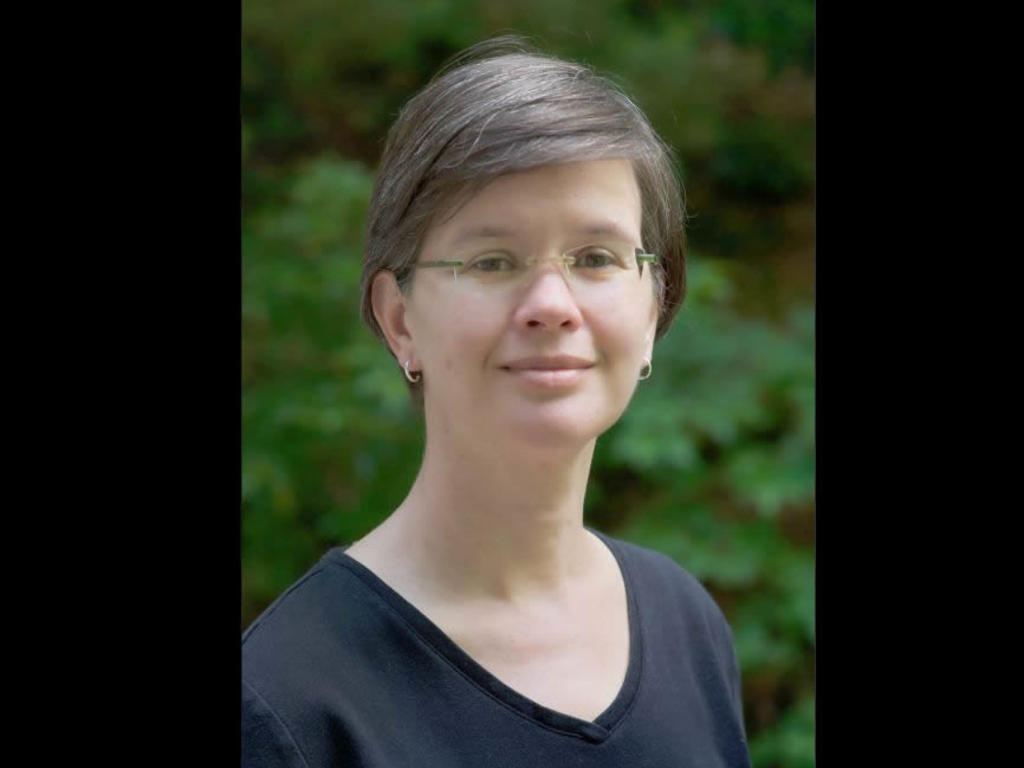Rhodes College is proud to announce Dr. Kendra G. Hotz as the first holder of the newly created Robert R. Waller Chair in Population Health. Hotz’s selection is based on her tireless work as the coordinator of the urban and community health concentration, and her dedication to building health equity and to the improvement of the health and healthcare landscape in Memphis.
The Robert R. Waller Chair in Population Health will provide leadership and continuity for urban studies majors with a concentration in urban and community health. This concentration makes it possible for students to explore healthcare theories through community-integrative inquiry and practice; develop the ability to understand and address population health and health policy from institutional, community, and structural perspectives; and learn to communicate effectively with academic, medical, policy, and community audiences. It is an innovative, community-integrative academic program that engages students in open dialogue about the complex relationships between race and social class, access to healthcare, religious faith, and health outcomes. With the creation of the Robert R. Waller Chair in Population Health, Rhodes continues to deepen its relationship with Memphis and to expand the possibilities for students to benefit from learning beyond the classroom.
The Robert R. Waller Chair is named for Dr. Bob Waller, who has served as a trustee at Rhodes College since 2003. Waller has been influential in shaping a culture of equity and compassion in healthcare both nationally and internationally. He is the past president and CEO of the Mayo Healthcare System and the past chair of the Institute for Healthcare Improvement. His vision for healthcare that is compassionate, competent, and equitable helped to shape the goals of the urban and community concentration. His generous spirit and energy for making connections between the city and the college have enabled the program to become deeply integrated with community and clinical organizations throughout Memphis.
As one of very few liberal arts colleges located in a metropolitan area, Rhodes is uniquely qualified to provide students and professors an opportunity to make change in the community. Students and professors do not engage the city merely as a laboratory for testing theory; instead they are committed to the health and well-being of the city and actively work with residents and community organizations to bring about meaningful, measurable improvement.
Hotz’s work, on and off campus, aims to do just that—promote health equity and improve the health and healthcare landscape within Memphis. Her research centers on the relationship between religious belonging and health-seeking behaviors, focusing especially on experiences that contribute to or damage trust between healthcare providers and those they serve, especially racial and ethnic minorities. Hotz’s recognition extends beyond the college campus, having been named Faculty-in-Residence at Le Bonheur Children’s Hospital, Theologian-in-Residence at the Church Health Center, and Senior Scholar in Religion and Ethics in the Center of Excellence in Faith and Health at Methodist Le Bonheur Healthcare. Hotz has authored or co-authored four books and more than a dozen articles and chapters, including Dust and Breath: Faith, Health, and Why the Church Should Care about Both, Transforming Care: A Christian Vision of Nursing Practice, “Big Momma Had Sugar, Imma Have it Too: Medical Fatalism and the Language of Faith Among African American Women,” and “I Can Do for Me: Race, Health, and the Rhetoric of Self-Love and Suffering.”
